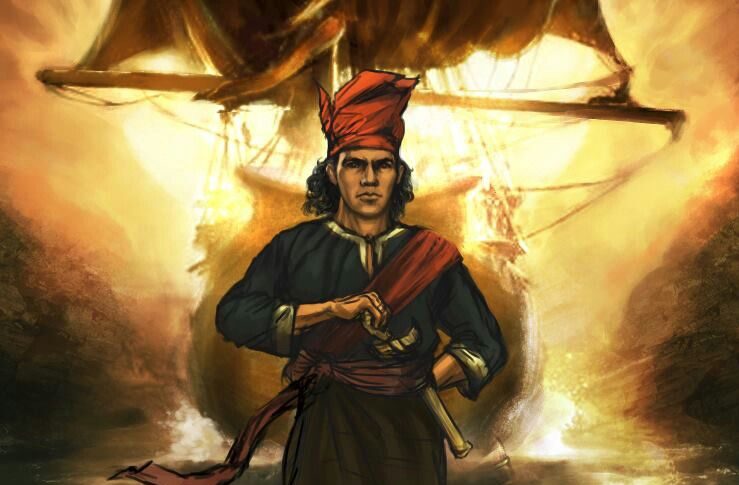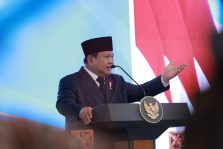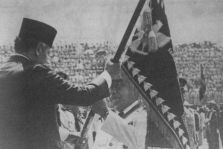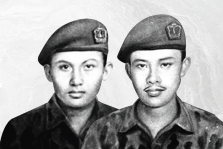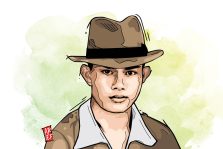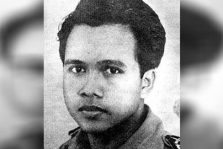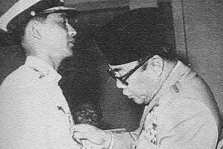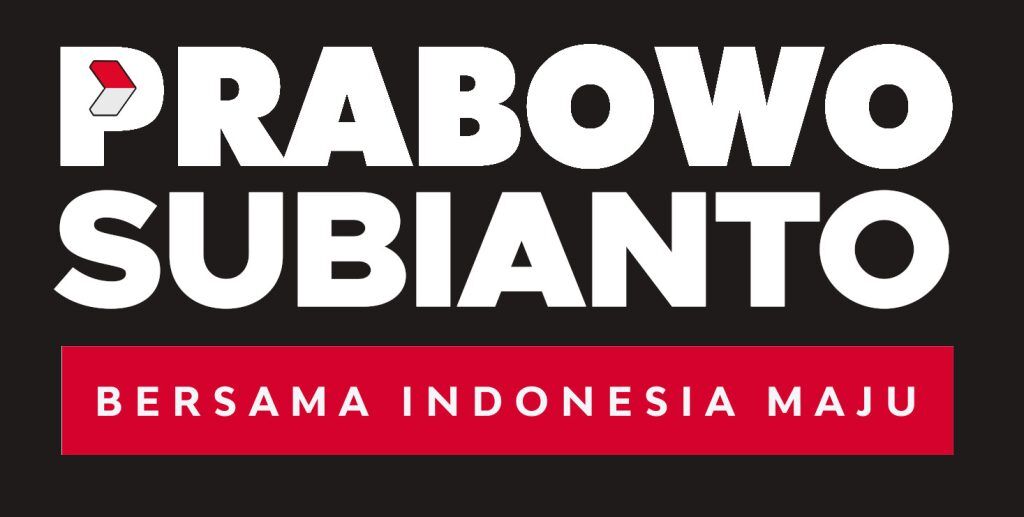By: Prabowo Subianto [taken from the Book: Military Leadership Notes from Experience Chapter I]
Nowadays, Hang Tuah is known as the street name in Jakarta, or as the name of a University in Surabaya, or as the name of a Maritime Vocational High School in Kediri. We also know his name from one of the Indonesian Navy’s destroyers, KRI Hang Tuah.
From the story of Hang Tuah, I understand that the fate of our villages, the fate of our families, and our fate as an individual is in our own hands. If we don’t dare to improve our situation, our condition will not get better.
According to some historians, Hang Tuah was born in 1444 in Malacca. Some people say that he was once a poor fisherman. Hang Tuah was a Malay hero in the 15th century during the reign of the Malacca Sultanate.
From the story of Hang Tuah, I understand that the fate of our villages, the fate of our families, and our fate as an individual is in our own hands. If we do not dare to improve our situation, our condition will not get better. The Qur’an said that Allah would not change the fate of a community unless they strive to make the necessary change themselves.
The tale of Hang Tuah began with his desire to learn martial arts. As a child, he worked as a woodcutter in his parents’ shop. There, his understanding of both the spiritual concept and the fighting spirit had begun to take shape. When he was ten years old, Hang Tuah learned silat martial arts from a teacher named Adi Putera along with four compatriots – Hang Kasturi, Hang Jebat, Hang Lekir, and Hang Lekiu.
Under Adi Putera, Hang Tuah and his four friends learned lessons ranging from martial arts to meditation. His life took a new turn when a group of pirates went on a rampage and attacked a village, leading to a response from the Treasurer (the equivalent of Prime Minister) of Malacca, Tun Perak.
With his guards, Tun Perak attempted to quell the invasion. However, these efforts made him a target of the pirates instead. Tun Perak’s guards were fleeing the pirates when Hang Tuah and his four friends saw him. Hang Tuah immediately came to Tun Perak’s assistance and defeated the pirates.
Tun Perak, impressed by the bravery of the five young men, invited them to join the royal army. He brought them before Mansur Shah’s father, Sultan Muzaffar Shah. Over time, they received several promotions and were known as the strongest members of the royal guard.
Hang Tuah’s career as an admiral was full of stories about his loyalty to the Sultan as told by Malay Annals and ‘Hikayat Hang Tuah’. He became the Sultan’s most trusted bodyguard and often accompanied him on official visits.
One of the most well-known stories happened in Majapahit. During a visit to the kingdom based in East Java, a local warrior named Taming Sari challenged Hang Tuah to a duel. Hang Tuah won the duel, and King Singhavikramavardhana gave Hang Tuah a keris (kris), a traditional serpent-shaped dagger named Taming Sari – after the warrior he defeated.
Although Hang Tuah was born in Malacca and worked there, he also became a hero of Nusantara because he attacked Dutch ships. He became a renowned figure n the Malay peninsula and Sumatra, Java, and all of Nusantara. He was a true maritime hero. The lessons we must take away is that independence and security depend on military prowess and the warrior spirit to secure the safety and security of this archipelago. From hundreds of years ago, the lesson is we must control the waters around us. We must have naval power. That is the lesson of Hang Tuah, Hang Kasturi, Hang Jebat, Hang Lekir, and Hang Lekiu. They are not only Malay heroes. They are also Indonesian heroes.

